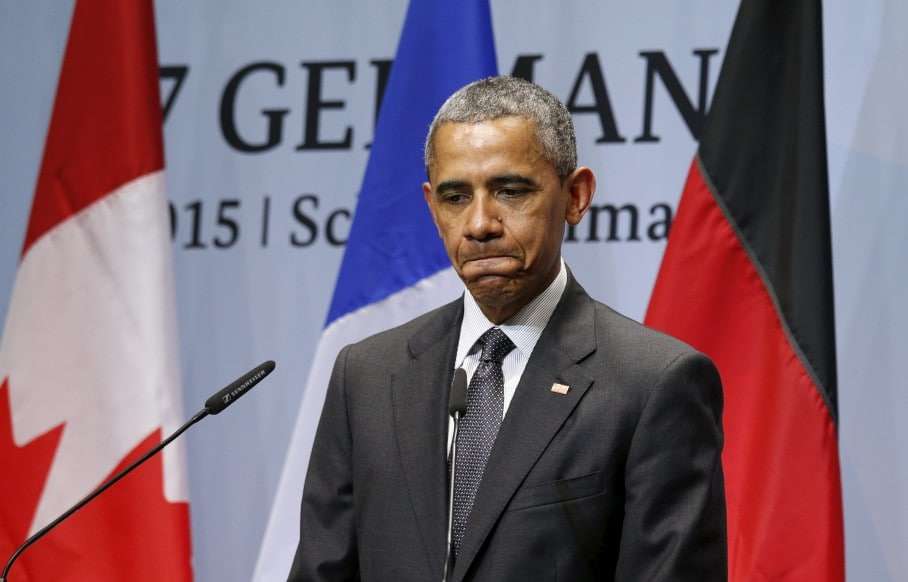The Volokh Conspiracy
Mostly law professors | Sometimes contrarian | Often libertarian | Always independent
President 'frustrated' with court decision on immigration reforms

During Monday's news conference after the G-7 summit, in addition to commenting on King v. Burwell, President Obama expressed his "frustration" that a lower court has blocked implementation of his immigration reforms.
Here are the relevant portions of the White House transcript:
QUESTION: I wanted to ask you about the possibility that the court battle over your actions on immigration could extend late into your term. Do you think that there's anything more that you can do for the people who would have benefitted from that program and now are in limbo? And how do you view the possibility of your term ending without accomplishing your goals on immigration?
PRESIDENT OBAMA: With respect to immigration, obviously, I'm frustrated by a district court ruling that now is winding its way through the appeals process. We are being as aggressive as we can legally to, first and foremost, appeal that ruling, and then to implement those elements of immigration executive actions that were not challenged in court.
But, obviously, the centerpiece, one of the key provisions for me was being able to get folks who are undocumented to go through a background check - criminal background check - pay back taxes, and then have a legal status. And that requires an entire administrative apparatus and us getting them to apply and come clean.
I made a decision, which I think is the right one, that we should not accept applications until the legal status of this is clarified. I am absolutely convinced this is well within my legal authority, Department of Homeland Security's legal authority. If you look at the precedent, if you look at the traditional discretion that the executive branch possesses when it comes to applying immigration laws, I am convinced that what we're doing is lawful, and our lawyers are convinced that what we're doing is lawful.
But the United States is a government of laws and separations of power, and even if it's an individual district court judge who's making this determination, we've got to go through the process to challenge it. And until we get clarity there, I don't want to bring people in, have them apply and jump through a lot of hoops only to have it deferred and delayed further.
Of course, there's one really great way to solve this problem, and that would be Congress going ahead and acting, which would obviate the need for executive actions. The majority of the American people I think still want to see that happen. I suspect it will be a major topic of the next presidential campaign.
And so we will continue to push as hard as we can on all fronts to fix a broken immigration system. Administratively, we'll be prepared if and when we get the kind of ruling that I think we should have gotten in the first place about our authorities to go ahead and implement. But ultimately, this has never fully replaced the need for Congress to act. And my hope is, is that after a number of the other issues that we're working on currently get cleared, that some quiet conversations start back up again, particularly in the Republican Party, about the shortsighted approach that they're taking when it comes to immigration.


Show Comments (0)